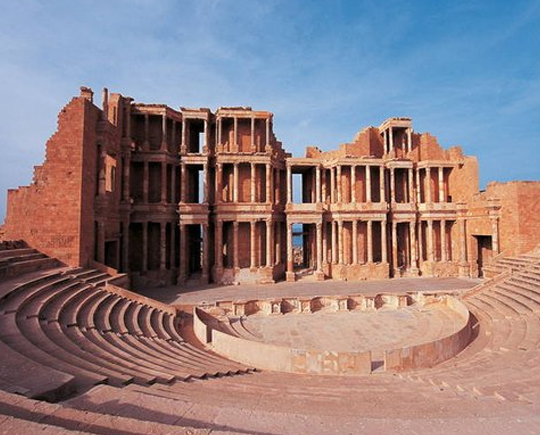Libya (LY)

1. Obtain a valid passport with at least 6 months validity from the date of entry into Libya.
2. Fill out the visa application form online or at the nearest Libyan embassy or consulate.
3. Prepare the required documents, including a passport-sized photo, travel itinerary, proof of accommodation, and proof of sufficient funds for the duration of your stay.
4. Pay the visa application fee, which may vary depending on your nationality and the type of visa you are applying for.
5. Submit your completed application form and supporting documents to the nearest Libyan embassy or consulate.
6. Attend a visa interview, if required, and provide any additional information or documents requested by the visa officer.
7. Wait for your visa application to be processed, which may take several days to a few weeks.
8. Once your visa is approved, collect your visa from the embassy or consulate or receive it by mail, depending on the visa processing procedures in place.
9. Check the visa to ensure all information is correct
1. Libya Tourist Visa Application Portal: Visit the official website of the Libyan Embassy to apply for a tourist visa online. (https://www.libyanembassy.org/visas)
2. Libya eVisa Application: Apply for an electronic visa through the official eVisa portal for Libya. (https://evisa.ly/)
1. Valid passport
2. Recent passport-sized photos
3. Completed visa application form
4. Proof of accommodation (hotel reservation or invitation letter)
5. Travel itinerary (flight reservation, train tickets, etc.)
6. Proof of financial means (bank statements, sponsorship letter)
7. Travel insurance
8. Letter of employment or school enrollment
9. Copy of previous visas (if applicable)
10. Health certificate (if required)
11. Marriage certificate (if traveling with spouse)
12. Birth certificate (if traveling with children)
13. Letter of consent (if traveling with minors without parents)
14. Any additional documents required by the Libyan embassy or consulate.
To extend your visa in Libya, follow these steps:
1. Visit the Immigration Office: Go to the nearest Immigration Office in Libya to inquire about extending your visa. Make sure to bring all necessary documents, such as your passport, current visa, proof of funds, and a valid reason for the extension.
2. Submit an Application: Fill out the visa extension application form provided by the Immigration Office. Make sure to provide accurate information and include any supporting documents required.
3. Pay the Fee: Pay the visa extension fee as instructed by the Immigration Office. Keep the receipt as proof of payment.
4. Wait for Approval: After submitting your application and fee, wait for the Immigration Office to process your request. This may take some time, so be patient.
5. Collect your Extended Visa: Once your visa extension is approved, return to the Immigration Office to collect your extended visa. Make sure to check the new expiration date and any conditions attached to the extension.
By following these steps, you can
Travelers to Libya are required to have a valid passport with at least six months validity remaining. Visas are required for most nationalities and can be obtained from the Libyan embassy or consulate before travel. It is recommended to check the latest visa requirements before your trip.
Additionally, travelers may be required to provide a yellow fever vaccination certificate upon arrival if they are coming from a country with a risk of yellow fever transmission. It is also advisable to have up-to-date vaccinations for hepatitis A and B, typhoid, and tetanus.
Due to the current security situation in Libya, it is recommended to check the latest travel advisories from your government before planning your trip. It is also advisable to register with your embassy upon arrival in Libya and to avoid travel to certain areas of the country, particularly in the south and areas near the borders with Chad, Sudan, and Egypt.
Overall, it is important to stay informed and take necessary precautions to ensure a safe and enjoyable trip to Libya.
Travelers to Libya should be aware of the following local laws and customs:
1. Dress modestly: Libya is a conservative country, and it is important to dress modestly, especially in public places.
2. Respect Ramadan: During the holy month of Ramadan, it is important to respect the local customs and traditions, including fasting and refraining from eating or drinking in public during daylight hours.
3. Photography restrictions: Photography of government buildings, military installations, and airports is strictly prohibited in Libya. Always ask for permission before taking photos of people.
4. Alcohol and drugs: The consumption of alcohol is strictly prohibited in Libya, as is the use of illegal drugs. Penalties for drug-related offenses are severe.
5. Respect for Islam: Libya is a predominantly Muslim country, and it is important to show respect for the local religion and customs. Avoid public displays of affection, especially between unmarried couples.
6. LGBTQ rights: Homosexuality is illegal in Libya, and LGBTQ travelers should be cautious